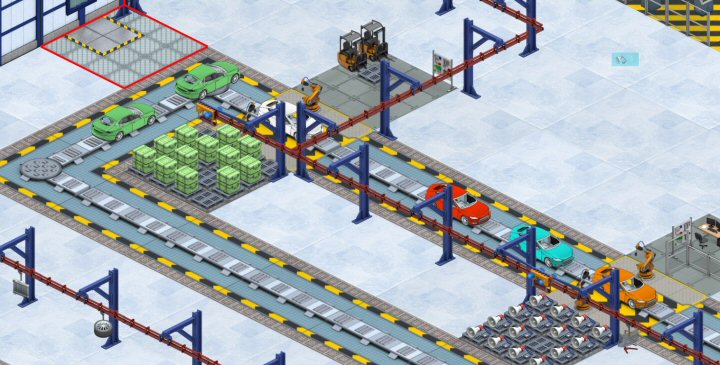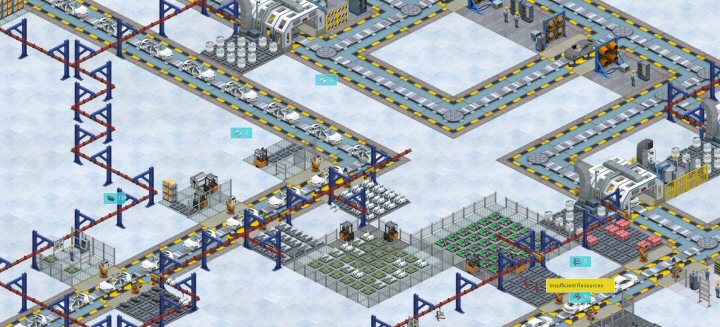I’m keen to get people playing a really early build of my next game: Production Line. My current aim is for it to be available for pre-orders and early alpha play in about two weeks time. This is MUCH earlier than I normally start taking money for a game, and letting people play it, but this as an experiment for me, and I’m always looking to try new stuff. The more I think about ‘Early Access’ for a game like this, the more I like it as a developer. I suspect I’m a much better programmer and ‘big picture’ designer than a designer of the nitty gritty mechanics of a game, and for someone like that, early feedback from real players will be invaluable. Here is my current plan:
The next two weeks: Get a playable Alpha.
The game is playable right now, and you can easily spend a few hours playing it without issues, or running out of things to do. The game is English-only, windows-only, and is missing the following:
- Proper music
- Proper SFX
- A decent GUI design
- Any kind of high scores, goals or achievements
- Modding support.
There will also be a lot of awful balance issues, and of course some hidden bugs you can enjoy finding. Yay!. My big internal debate right now is how much to charge people ordering at this stage, more on that next week. This is likely to be a direct-download from-the-developer only affair in the short term. Anyway beyond that…

The month of February: Play Balance
Everything will be thrown into chaos once the player base goes from just me, to the 100 or so people mad enough to pre-order at this stage. (I plan no press release or ads, just a blog and twitter/facebook announcement. I don’t want to make a big deal out of it). I suspect I will be inundated by people saying ‘Windows are too cheap!’ ‘Employees don’t cost enough!’ ‘Aircon is a worthless upgrade’ and so on… Sorting through all that and making the game a balanced, playable experience for everyone is going to take a lot of analysis and fiddling so I expect that this, combined with GDC at the end of Feb, and also Shadowhand‘s launch, will mean February will be likely ‘feature-free’ in update terms.
The month of March: Late game stuff.
At this point I’ll likely want to gather opinions on, and suggestions for, the two big missing areas of the game, marketing & QA. The cars currently are assumed to have neither, and the whole topic is ignored, but introducing them both will be fun, and involve new research, new graphics, and a whole lot more GUI. This is just to get stuff into a vaguely playable state and make sense of the mechanics. Marketing is obviously something I am personally interested in, but I’d like to know the extent to which players of the game find that it will add to the experience.

April and beyond: Features and polish.
Music, SFX, a decent GUI design, and a whole lot more features are all planned, but I intend to ask whatever community I can build up to give me their priorities in terms of what I work on. Some people may be interested in more employee management, others in variants of car designs, maybe some in an even bigger tech tree, or more complex market mechanics, it could go in a number of different directions from here.
Q2 2017: Steam Early Access?
If all goes well, I might take a step towards putting the game on steam for early access later in the year. I can’t guarantee that, and never intend to make any promises about the future, but I also cannot foresee any problems. Until then, it will be direct sales only, so I can keep control on things, and not have to divide my time between my blog & forum and steam and so on. Also it can be a bit of a megaphone effect when you launch on steam, even in Early Access, so I’d rather reserve any press coverage I may be lucky to get until after all those early issues have been wrangled along with help from the early-players.
Beyond that… who knows! The game may prove a success or a flop, and that largely determines what happens. I’m loving working on it, so I can’t see me stopping work on it for ages, even if nobody buys a copy :D If you want to know more about the game we have a website here, and also a bunch of youtube playthroughs here. Let me know what you think.